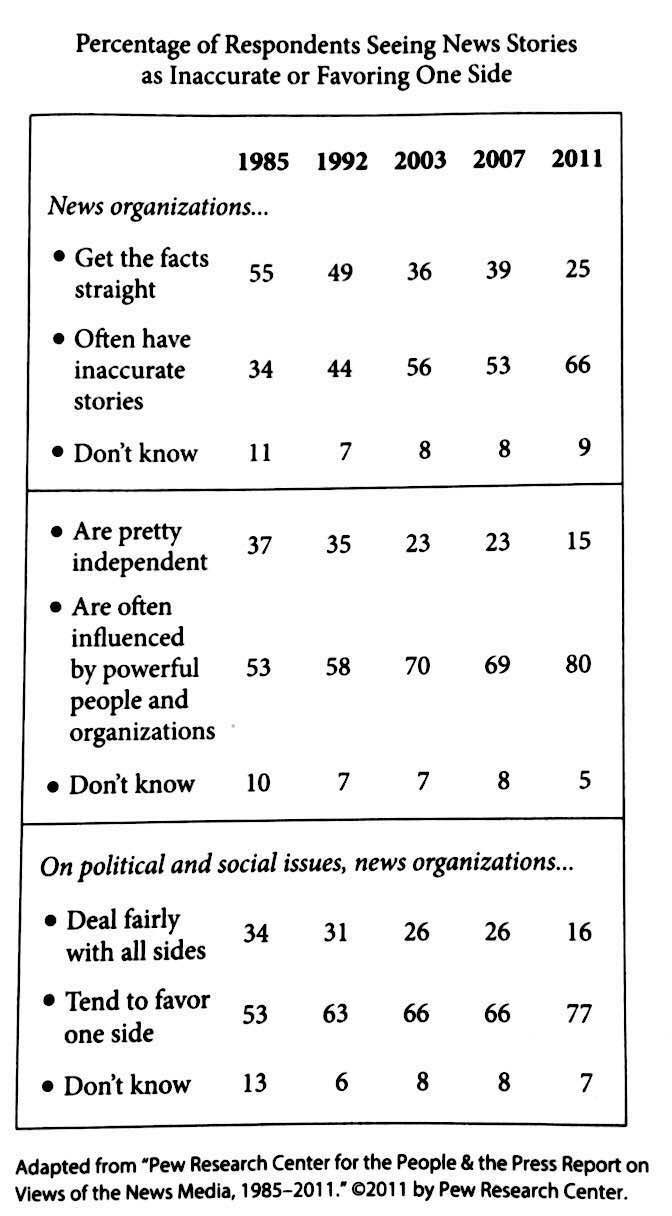Questions 11-21 are based on the following
passage.
This passage is adapted from Stephen Coleman, Scott Anthony, and David E. Morrison, “Public Trust in the News.” ©2009 by Stephen Coleman.
The news is a form of public knowledge.
Unlike personal or private knowledge (such as the
health of one’s friends and family; the conduct of a
private hobby; a secret liaison), public knowledge
5 increases in value as it is shared by more people. The
date of an election and the claims of rival candidates;
the causes and consequences of an environmental
disaster; a debate about how to frame a particular
law; the latest reports from a war zone—these are all
10 examples of public knowledge that people are
generally expected to know in order to be considered
informed citizens. Thus, in contrast to personal or
private knowledge, which is generally left to
individuals to pursue or ignore, public knowledge is
15 promoted even to those who might not think it
matters to them. In short, the circulation of public
knowledge, including the news, is generally regarded
as a public good which cannot be solely
demand-driven.
20 The production, circulation, and reception
of public knowledge is a complex process. It is
generally accepted that public knowledge should
be authoritative, but there is not always
common agreement about what the public needs to
25 know, who is best placed to relate and explain it, and
how authoritative reputations should be determined
and evaluated. Historically, newspapers such as The
Timesand broadcasters such as the BBC were widely
regarded as the trusted shapers of authoritative
30 agendas and conventional wisdom. They embodied
the Oxford English Dictionary’s definition of
authority as the “power over, or title to influence, the
opinions of others.” As part of the general process of
the transformation of authority whereby there has
35 been a reluctance to uncritically accept traditional
sources of public knowledge, the demand has been
for all authority to make explicit the frames of value
which determine their decisions. Centres of news
production, as our focus groups show, have not been
40 exempt from this process. Not surprisingly perhaps
some news journalists feel uneasy about this
renegotiation of their authority:
Editors are increasingly casting a glance at the
“most read” lists on their own and other websites
45 to work out which stories matter to readers and
viewers. And now the audience—which used to
know its place—is being asked to act as a kind of
journalistic ombudsman, ruling on our
credibility (broadcast journalist, 2008).
50 The result of democratising access to TV news
could be political disengagement by the majority
and a dumbing down through a popularity
contest of stories (online news editor, 2007).
Despite the rhetorical bluster of these statements,
55 they amount to more than straightforward
professional defensiveness. In their reference to an
audience “which used to know its place” and
conflation between democratisation and “dumbing
down,” they are seeking to argue for a particular
60 mode of public knowledge: one which is shaped by
experts, immune from populist pressures; and
disseminated to attentive, but mainly passive
recipients. It is a view of citizenship that closes down
opportunities for popular involvement in the making
65 of public knowledge by reinforcing the professional
claims of experts. The journalists quoted above are
right to feel uneasy, for there is, at almost every
institutional level in contemporary society,
scepticism towards the epistemological authority of
70 expert elites. There is a growing feeling, as expressed
by several of our focus group participants, that the
news media should be “informative rather than
authoritative”; the job of journalists should be to
“give the news as raw as it is, without putting their
75 slant on it”; and people should be given “sufficient
information” from which “we would be able to form
opinions of our own.”
At stake here are two distinct conceptions of
authority. The journalists we have quoted are
80 resistant to the democratisation of news:
the supremacy of the clickstream(according to
which editors raise or lower the profile of stories
according to the number of readers clicking on them
online); the parity of popular culture with “serious”
85 news; the demands of some audience members for
raw news rather than constructed narratives.